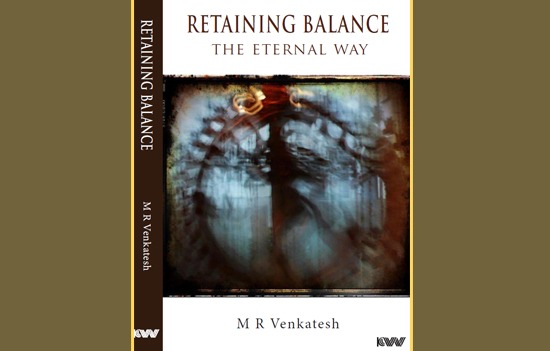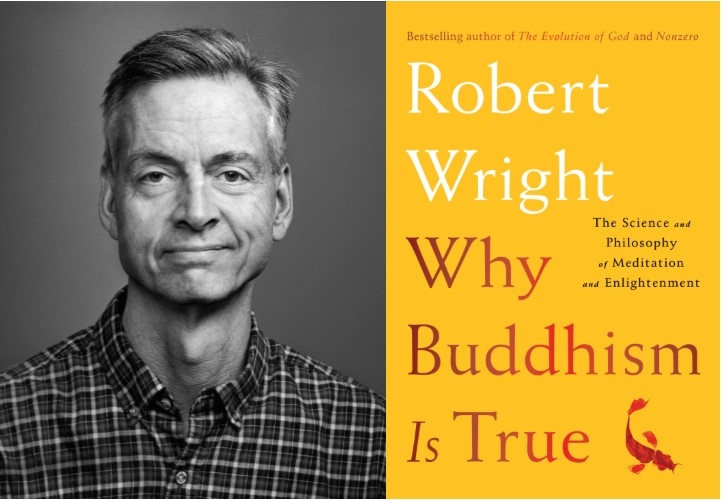- Visitor:23
- Published on:
Transforming the Discipline of Economics into a Study of Indiscipline
Consumerism is ultimately a ‘spiritual quotient deficiency syndrome’ that cannot be remedied by mere economic policies alone. We need to realize that it is family and family alone with its ability to restrain individuals from reckless consumption and ensure balance in economy and society. It is thus the destruction of family that has emerged to be the meeting point of Liberals and Marxists.

‘Shop till you drop’. This was the clarion call of President Bush in the aftermath of the tragic events of September 11, 2001. It was a terrorist attack of unprecedented scale. The global war (remember whenever a tragedy strikes the US, it is always global) on terror had just begun. For a citizen of India (who has been a victim of terror for over 1300 years), this appeared not only comical and farcical, but also tragic. But that is less relevant to the extant discussions. The issue is why did the President of the US in the aftermath of a gruesome attack suggest that every American should shop till he dropped dead. “Get down to Disney World in Florida,” he urged just over two weeks after 9/11. “Take your families and enjoy life, the way we want it to be enjoyed.” The suggestion that a large section of the population should “go to Disney World” while the US administration was fighting terror was downright funny. More to the point – even as families of those who were killed in this terror attack were in a state of mourning, the President of the US wanted the rest to behave as if nothing happened.
And this is not an isolated event. Half way around the globe, the city of Mumbai has been a victim of repeated terror attacks. Thousands of its citizens were either killed or maimed in those dastardly attacks. Yet what matters the very next day was whether the Bombay Stock Exchange index went up or fell as a consequence to those attacks. What mattered was whether the suburban trains in Mumbai – the lifeline of Mumbai – had begun to function. The functioning of this public transport is vital for the functioning of the city.
And when it did begin to function, the common refrain was “look at the resilience of the city.” Media would repeatedly whip up passion of a Mumbai that had ignored the terrorists, and how it had returned to normalcy even as the number of dead in every such attack would increase by the hour. All this was hailed as conclusive evidence of how the city of Mumbai had thumbed at the nose of the terrorists. This is Mumbai’s equivalent to the profound stupidity of President Bush’s call for ‘shop till you drop’ post the terror attacks in September 2001. On first blush, there is nothing to link between the call of President Bush and the narrative built around ‘Mumbai’s resilience’ after every successive terror attack. But on deeper analysis, there is an umbilical cord that links the two. Why should it be business as usual after such serious terror attacks? Who scripts such profanities? Who orchestrates such a line of thinking? How does the media respond in unison to such ideas? Who controls the collective thinking of every media? Why are the intellectuals silent and fall for the bait?
The answer to these questions is easy – it is the corporates that seek to declare that it is business as usual. It is in the interest of corporates to ensure that terror should not paralyze their businesses. More specifically, corporates seem to believe that they must remain irrelevantly neutral in the war on terror. To them, all that matters is money and markets. Life must go on.
Isn’t it? As advertisements and sponsorships flow from corporates, media is compelled to toe their line of thought. President Bush could not have suggested anything else. His corporate sponsors would not have allowed him otherwise either. In the era of globalization, where corporates dominate markets and market economies, let us face a simple fact: President Bush never had a choice. Neither does the global media have any after a terror attack. Having prized open markets through the idea of globalization, having built factories with huge capacities, large multinational corporates now know that they need to push their goods at a feverish pace. That puts them in direct conflict with families and their culture. For consumerism to flourish, families need to resort to borrow, sometimes way beyond their means to buy. But that is merely an issue of facilitation – sorted mostly by the exponential growth of credit cards. But what if families refuse to get sucked into the vortex of consumerism? what if families practice restraint – the quintessence of culture? What if families practice restraint – quintessence of culture? What if families believe in the need to live with their means and do not wish to be co-opted into what they consider a mad race? The answer is plain and simple – destroy families to let corporates profit.
It is precisely for this reason that multinational corporates and modern economic thinkers consider family as a stumbling block to economic nirvana. Modern market economies do people to indulge in a lifestyle marked by the illusion of radical individual autonomy and a slave to all personal passion. Nothing else matters. Nothing else should. In Born to Buy, Professor Juliet Schor details the marketing and advertising techniques that bypasses parents, and points out to corporate attempts in trying to market their products directly to children as young as three and four years old. Companies spend millions in marketing research and advertising to every age category, beginning from, believe it or not, toddlers. Benjamin Barber, in his book Consumed, discusses the troubling trend of individuals defining themselves by the brands they use. Brands, he argues, have frighteningly replaced families, religion, and communities as a source of identity. He writes, “The boundary separating the person from what she buys starts to vanish, and she starts to become the products she buys.” These are serious problems. As several commentators including William Leach in Land of Desire have noted, America has seen a cultural shift from productive capitalism, with a focus on savings and investment to a consumerist society where Americans consume on borrowed money. The reasons, according to Leach, are a complex interaction of cultural shifts, education, increased individualism, and centralization, much of it driven by modern economic policies which have encouraged consumerism and borrowing. Little do we realize that consumerism is a toxic malady that will undermine a free society. Wilhelm Ropke – the Swiss economist who was instrumental in rebuilding Germany after World War II, and an ardent free marketer – once asked if there was “any more certain way of desiccating the soul of man than the habit of constantly thinking about money and what it can buy? Is there a more potent poison than our economic system’s all pervasive commercialism?”

A market economy with an abundance of goods is well and truly welcome. This idea of market economics is distinct from consumer driven economies where the idea is incessant supply will create its own repeated demand. Naturally, in this toxic scenario, economic policies alone cannot put fetters on anyone to limit consumption. Like the ecosystem of the Left, liberals too hunt in packs. Any contrarian viewpoint is put down with ruthless force. Consumerism is ultimately a ‘spiritual quotient deficiency syndrome’ that cannot be remedied by mere economic policies alone. We need to realize that it is family and family alone with its ability to restrain individuals from reckless consumption and ensure balance in economy and society. It is thus the destruction of family that has emerged to be the meeting point of Liberals and Marxists.
Nothing illustrates the meeting point between the Liberals and the Left, other than the idea of taxing inherited wealth. Recall the discussion on the issue of inheritance earlier in this chapter, and how the Left is traditionally against it? Interestingly, one of the issues that unite the Liberals and the Left is the idea of taxing inheritance. The rationale for the Liberals is that such a tax incentivizes the wealthy to live lavishly during retirement years. The broader calculation is that such spending aids current consumption, so there is little left at their death for the government to tax. Dying broke surely beats the taxman, but is terrible for the next generation, who instead of building the inherited business have actually to begin from the scratch.
Free market economists realize that having unleashed the genie of consumerism; they must necessarily allow the institution of family to wither. As families wither, consumerism flourishes. These economists also realize that even as it seeks to maximize profits in the short run, they increasingly have made their economic model unsustainable in the medium and long term. There is an increasingly, albeit belated, realization within the pantheon of economists that there is indeed a missing quotient in their entire theory. And that is restraint. Restraint in turn flows from families rooted to culture and civilization. But having declared their theories to be absolute, economists are now caught between a rock and a hard place. If they jettison their theories, they are doomed, and if they accept the missing quotient in their economic thoughts, they are damned. As long as the party lasted, everyone was having a ball. Now, everyone is asking a fundamental question – who will foot the bill? Remember, economies work on the four ideas of demand, supply, savings and investments. It is the family that ensured that the four ideas were constantly counter-balanced. As families were under a frontal attack, first by the Leftists, and subsequently by the Liberals, the counter-balancing mechanism, so very vital for the functioning of the macro-economy, went sorely missing. That explains why the discipline of economies has turned into a study of indiscipline.
Source:
The original article named: “Modern Economies and its fixation to Consumption”, Retaining Balance (The Eternal Way) by MR Venkatesh, Page: 135 – 139
Center for Indic Studies is now on Telegram. For regular updates on Indic Varta, Indic Talks and Indic Courses at CIS, please subscribe to our telegram channel !
- 11 min read
- 0
- 0










